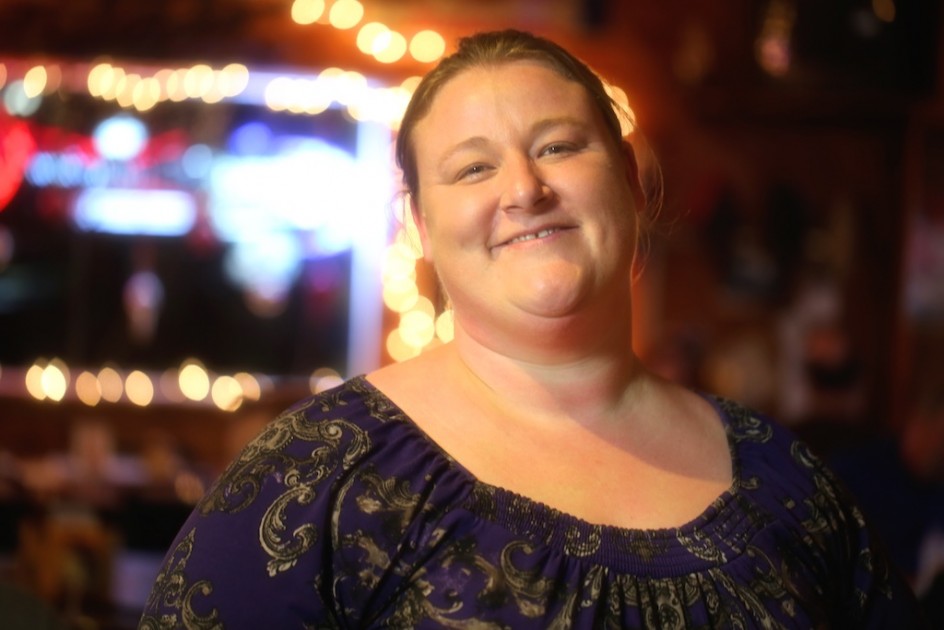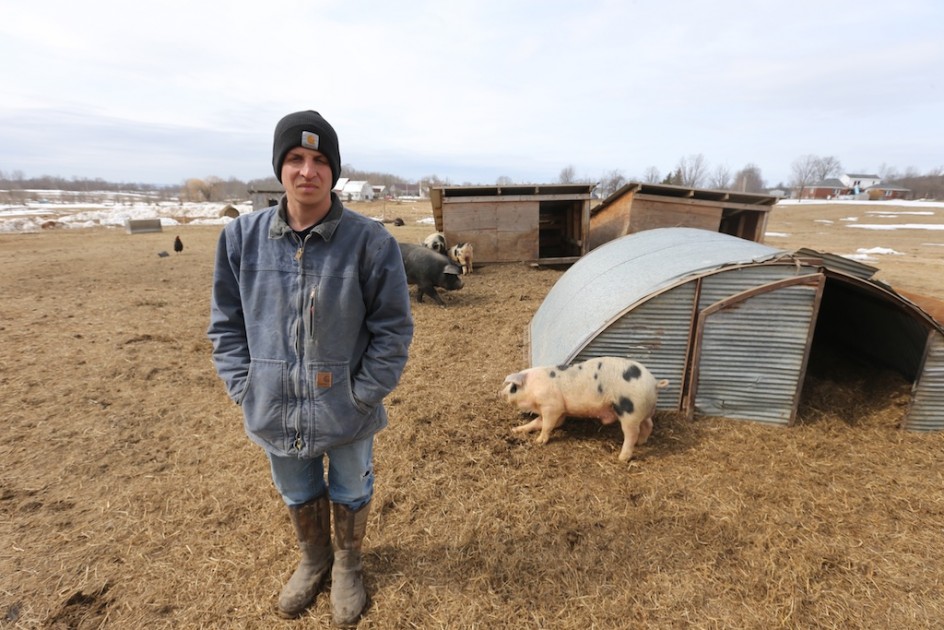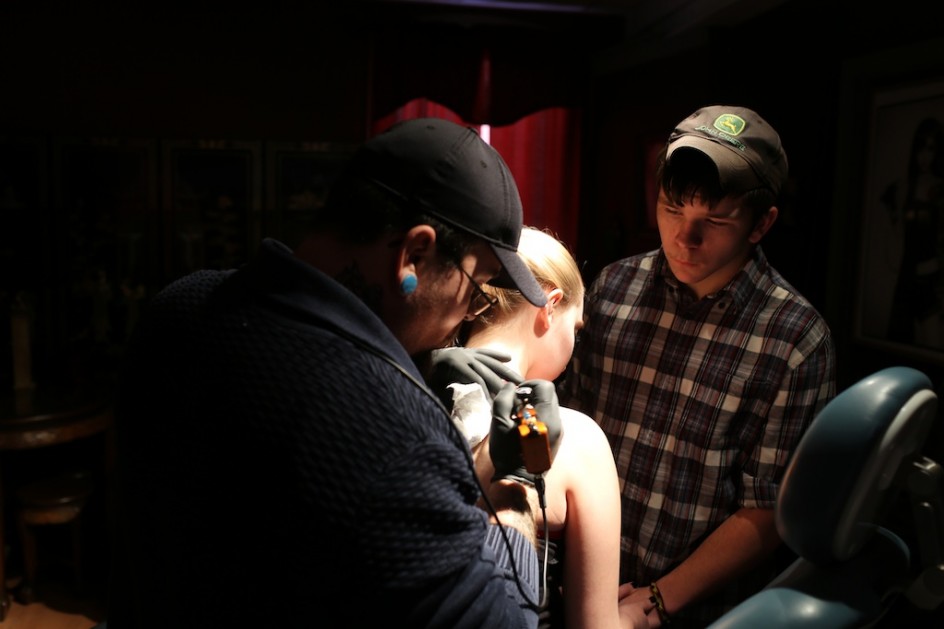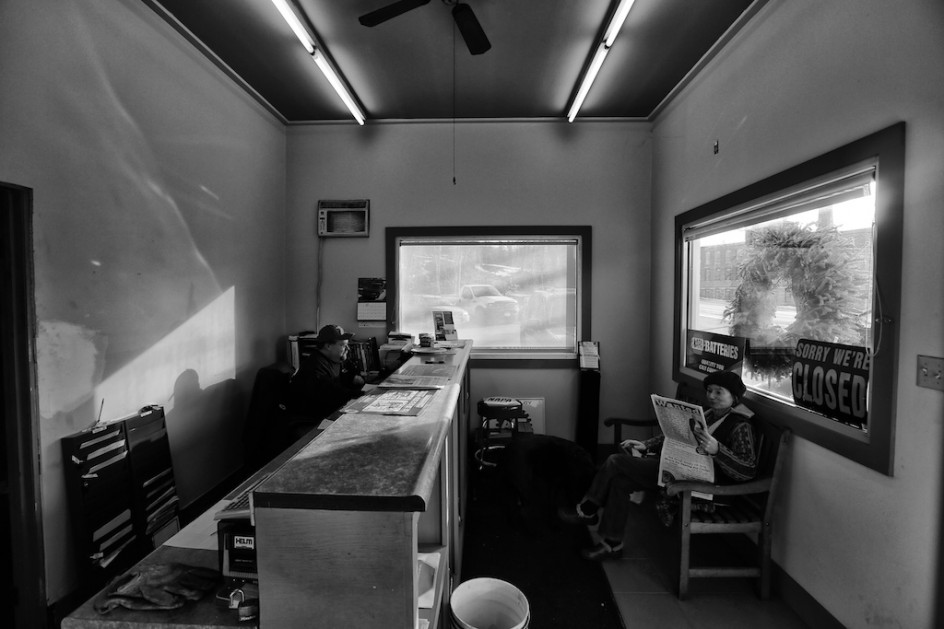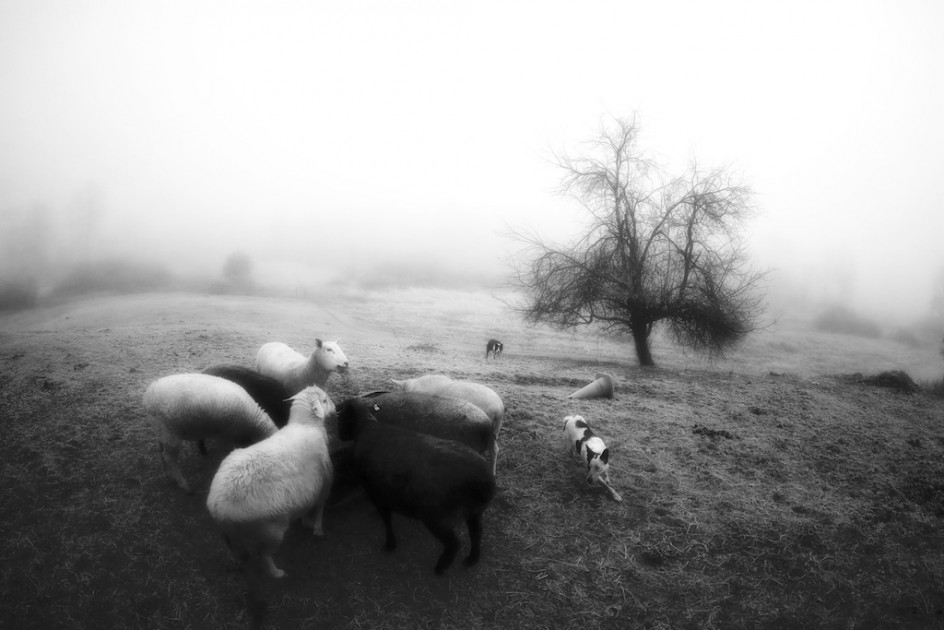
How curious, a Jew, the grandson of immigrants, a lifelong admirer of the true Jesus Christ, a seeker turned Quaker, writing about the meaning of Christmas. I love that about America, people mixing together, all kinds of ideas and way of living colliding, the pot is always stirring.
I have to admit that Christmas has always been important to me. I have celebrated it one way or another, almost all of my life. But I think in order to save my idea of it, it’s time for me to leave it behind. For me to keep Christmas in a way I am comfortable wish, I need to stop celebrating it.
Mahatma Gandhi said once “I like your Christ, I do not like your Christians. Your Christians are so unlike your Christ.” I don’t know all Christians, I can’t say what they are all like. But I know what Gandhi means. There is often a wide gap between faith and practice.
I should be honest and confess that I don’t care for forced sentimentality. Christmas is filled with stress and pressure. It has been Disneyfied and emotionalized beyond recognition, turned into an expensive and highly profitable brew of self-serving emotion. That is the Disney idea, of course, to help us fantasize our lives.
Christmas has a lot to do with money and profit, fantasy and yearning. It calls upon us to feel good while miming sacrifice and commitment.
Christmas is ostensibly about children in our culture, yet I suspect it is more often about adults wishing to be children again, or pushing our nostalgia for childhood onto the young. There is much talk of the poor at Christmas, but little talk of the poor on any other day, I’ve always felt that Christmas, like some elements of animal rescue, is more about giving people a chance to feel good than it is about being good.
No wonder you can almost hear the crash the next day, a great heaving sigh somewhere between exhaustion and relief.
“The memory of the revolutionary zealot who walked across Galilee gathering an army of disciples with the goal of establishing the Kingdom of God on earth, the magnetic preacher who defied the authority of the Temple priesthood in Jerusalem, the radical Jewish nationalist who challenged the Roman occupation and lost, has been almost completely lost to history,” writes Reza Asian in his best-selling book Zealot: The Life And Times Of Jesus Of Nazareth.
I loved this book, this religious scholar reminded me why I was drawn to the story of Jesus Christ in the first place, and drawn to his birthday.
“That is a shame,” wrote Asian.”Because the one thing any comprehensive study of the historical Jesus should hopefully reveal is that Jesus of Nazareth—Jesus the man—is every bit as compelling, charismatic, and praiseworthy as Jesus the Christ. He is, in short, someone worth believing in.”
And whose birthday is well worth honoring and celebrating.
I have never seen a company touting Christmas products mention Jesus the radical, never seen him mentioned in those heartwarming movies shown on Christmas, I have never heard him discussed or explained at any Christmas gathering I have been invited to, or mentioned by any politician wishing his or her constituents a Merry Christmas. This true Jesus has never been portrayed on any Christmas card I have ever received.
I don’t care for the dominant idea of Christmas, the Disney idea, the Rockwell idea. It’s a super-hyped, stylized idea of life and family, it often seems saccharine and false to me, way beyond the reach of most of us and way over our heads. I don’t think it is even remotely attainable for the vast majority of families. Just as Christmas evokes the poor but has little to do with them, Christmas also evokes the idea of family but has little to do with families.
A holiday so centered on gifts and ribbons and trees and enormous meals seems thin and shallow, too expensive for many, it seems to last just a few hours into the next year, another forced ritual of joy and celebration. Are we really helping the poor by hosting a holiday so complex and elaborate the poor couldn’t possibly afford to participate.
The business of making families, like the business of making sausages, or the business of democracy, is simply not as pretty as Disney World’s sold-out evocation of it or Rockwell’s fantasy paintings of Christmas dinners. Disney is much more popular and successful than I am, and I respect the very obvious fact that this idea of Christmas is an idea lots of people are eager, even desperate, to embrace. For me, Christmas epitomizes the way we would like family and life to be, so the current practice of Christmas makes inevitable the crash than follows, when almost everyone that I know comes to recognize another dream they have failed to achieve in the land of profitable dreams.
And this is the American idea, I think, we must always aspire to more than we have, so that we can equate expensive presents and things with love and connection. What child wouldn’t love Christmas, wouldn’t like to be showered with gifts, but what, exactly does this teach them about how to live? Christ’s idea of faith was giving things away, not acquiring them, of letting go.
Every serious biography of Christ describes him as an compromising, committed, hell-raising radical, a fierce advocate for the poor. Worrying about the poor has fallen out of favor in America, it has yet to be mentioned in any presidential debate.
“As I read the birth stories about Jesus I cannot help but conclude that thought the world may be tilted toward the rich and powerful, God is tilted toward the underdog,” wrote Philip Yancey, the American Christian scholar and author. Sometimes I think Christmas is tilted towards the rich and the powerful as well. Christ was always tilted towards the underdog.
David Platt, author of a biography of Christ called Radical: Taking Back Your Faith From The American Dream, wrote of Christmas that “we are settling for a Christianity that revolves around catering to ourselves when the central message of Christianity is actually about abandoning ourselves.” If the Christic idea of faith had prevailed over the corporate one, it is quite possible we wouldn’t be destroying the earth with our super-heated waste.
Pratt wrote that he could not help but think that somewhere along the way we had missed what was radical about our faith and replaced it with what is comfortable.
An important point, I think, comfortable is the right word to describe the Disney Christmas: roaring fires, laughing and loving families, plentiful and lavishly prepared meals, special and carefully chosen gifts specially wrapped. Comfort and Joy.
“Radical obedience to Christ is not easy,” writes Platt, “it’s not comfort, not health, not wealth, and not prosperity in this world. Radical obedience to Christ is to risk losing all these things. For Platt, such risk finds its reward in Christ, that is more than enough, he says.
For the vast majority of people I know of who celebrate Christmas, that is not nearly enough. I’m not at all certain I could do it myself. The poor, the very people who marked Christ’s life in the world, are a footnote. Nobody is trying to sell things to them.
On my Christmases, the pile of gifts under my family Christmas tree extended to the ceiling, it took a whole day to open them, hours to eat and digest dinner. We had little money, we spent way too much. People of limits lost their boundaries on Christmas. Yet we had no idea how to give each other the most important gift of all – love and an understanding of what we were doing. I don’t imagine Jesus Christ would join in the Disney Christmas or like it very much.
The great flaw my family’s Christmas celebrations was the hypocrisy of them: we were Jewish, we belonged to a Temple, we were stealing someone else’s holiday. We were not doing this out of faith but out of a desire to go along and fit in. And out of guilt. My parents wanted to make up for all of the quarreling and miserable days that preceded this day of giving. In many ways, I never knew whether Christmas is a secular holiday or a religious holiday. I still don’t, the businesses whose very existence depends on Christmas giving don’t care.
For sure, Christmas is the holy day of the Corporate Nation. Christ tried to burn down the Temple in Jerusalem, he found the priests both greedy and corrupt. Our Golden Temples are the big corporations, sucking money and wealth out of the very air and hanging onto it for dear life. They don’t care about the poor either.
I don’t know how hollow Christmas rings for many millions of others. I know good people who live for it. I know people who struggle to survive it.
I had dinner with a friend the other night who said Christmas is mostly stress for her. She starts shopping in July, insists that her children – they are adults – pretend that Santa is real – and starts cooking for family and filling stocks the day after Thanksgiving. I have many friends who close their eyes and struggle through painful family gatherings, trying to be joyous.
For me, Christmas has left the real lives of people behind, and become an idea to which everyone aspires but very few can achieve.
I like Laura Ingalls-Winder’s idea of Christmas: “Our hearts grow tender with childhood memories and love of kindred, and we are better throughout the year for having, in spirit, become a child again at Christmas-time.” Graham Greene called Christmas the feast of failure, sad but consoling. Sylvia Plath said she always felt overstuffed and disappointed after Christmas, the promises of the carols and the Christmas turkey never came to pass.
And she didn’t have to deal with Black Friday or Cyber Monday, Amazon Everyday, or Giving Tuesday or big screen TV’s 40 per cent off, open till Christmas Eve!
I think the sadness comes from the bar being set so high we can never reach it, all we can do is jump up and down and shop earlier and earlier each year. Christmas cannot transform us or our lives, it just promises to. Scheduled joy is ephemeral for me, an illusion.
I’ve celebrated Christmas too many times to count, this year my wife and I have decided to leave Christmas and it’s pressure and twisted roots and false promise behind.
I very much respect the people who live it and celebrate it, I wish them the happiest holiday. We have chosen to make Christmas a day for a different kind of celebration. We don’t need to buy things and exchange gifts, we don’t need a big dinner, we don’t need to vanish into the sometimes suffocating expectations and rituals of family, carried out without consultation or much thought.
Perhaps as a non-Christian, and a Jew who has separated from his born faith, I have no right to celebrate this holiday anyway, regardless of how I feel about it. But then, there is Jesus Christ…
I have no right to tell anyone else how or whether to celebrate any holiday. And I have no idea.
But as a lifelong admirer of Jesus Christ, I want to honor his birthday by doing the honor of celebrating what he was truly about, to remember what is faith and what is comfortable. I want to shed the growing weight of it.
That is more than enough for me.

